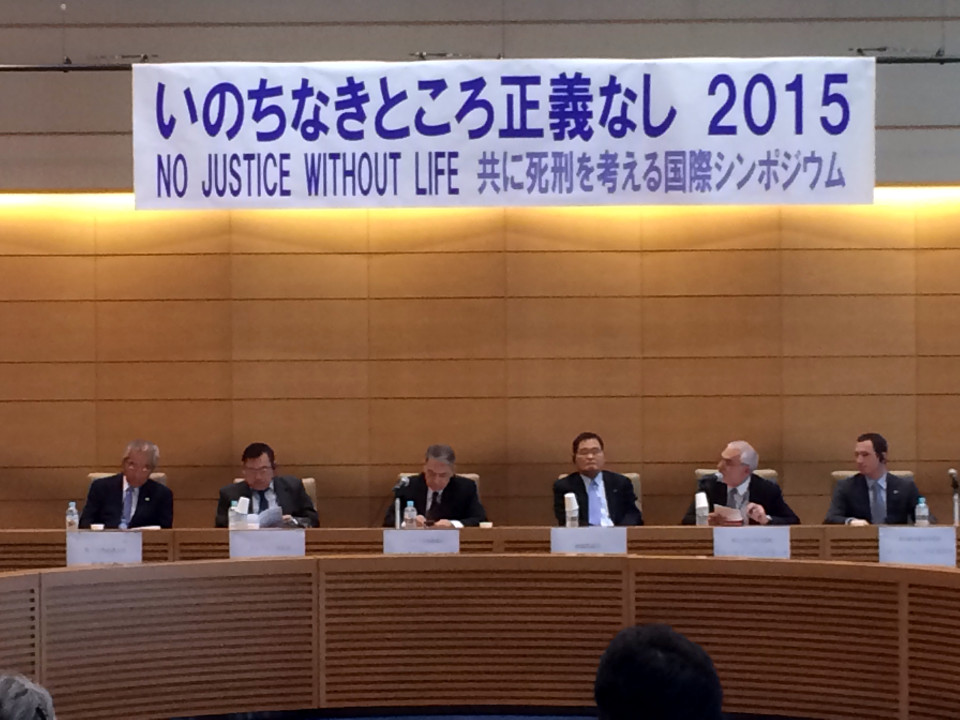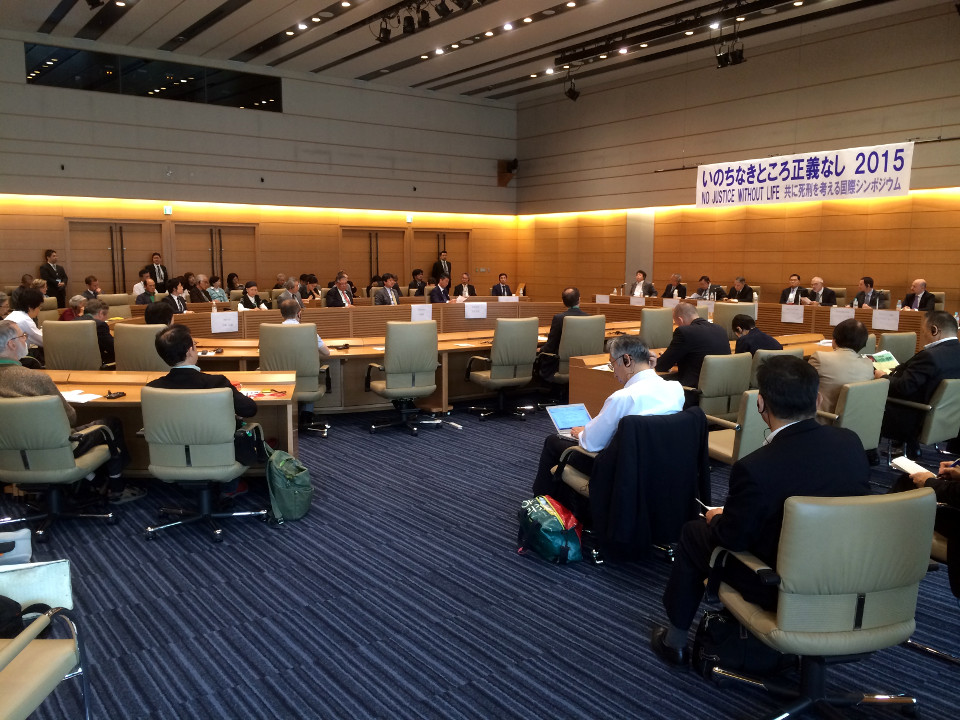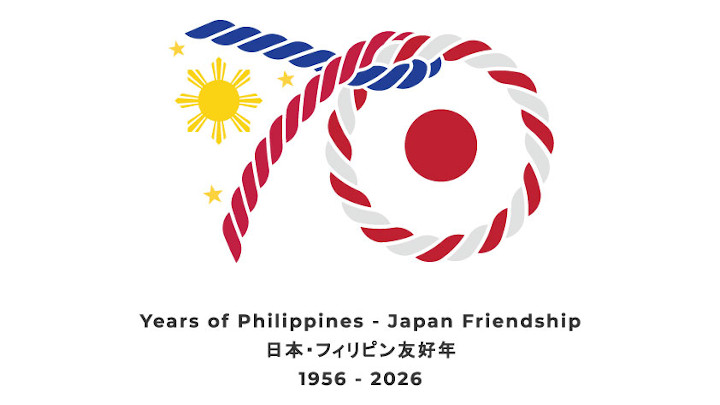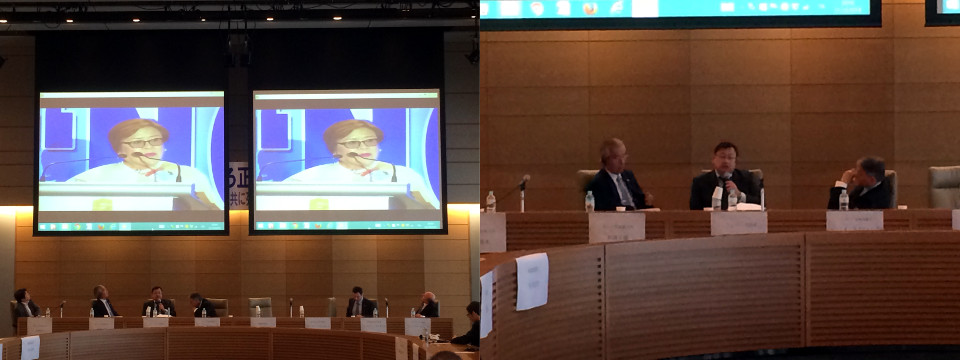Philippines Joins Global Forum on Abolition of Capital Punishment
 22 October 2015, Tokyo – The Philippines shares its experience in the abolition of capital punishment at a global forum in Tokyo entitled “No Justice Without Life” as the country’s contribution to the international coalition towards protecting human rights and the dignity of human life.
22 October 2015, Tokyo – The Philippines shares its experience in the abolition of capital punishment at a global forum in Tokyo entitled “No Justice Without Life” as the country’s contribution to the international coalition towards protecting human rights and the dignity of human life.
Administrator Manuel G. Co of the Parole and Probation Administration, Department of Justice gave a presentation on the Philippine laws prohibiting the death penalty during the forum with the theme “Justice and Human Rights – Towards a Society Without the Death Penalty: The World and Japan in Dialogue.”
 The international dialogue was held at the Congress Hall of the House of Representative of Japan (photo left) and organized by the NGO Community of Sant’Egidio and the Permanent Commission for Human Rights of the Italian Parliament under the patronage of the Italian Embassy in Japan and the Parliamentary League for the Abolition of the Death Penalty in the National Diet of Japan.
The international dialogue was held at the Congress Hall of the House of Representative of Japan (photo left) and organized by the NGO Community of Sant’Egidio and the Permanent Commission for Human Rights of the Italian Parliament under the patronage of the Italian Embassy in Japan and the Parliamentary League for the Abolition of the Death Penalty in the National Diet of Japan.
Administrator Co, who was the guest of honor at the global forum, said the 1987 Constitution emphasizes the policy against the death penalty in Section 11, Article II, which provides that :”(T)he State values the dignity of every human person and guarantees full respect for human rights” and Section 19, Article III (Bill of Rights) that “…(N)either shall the death penalty be imposed, unless, for compelling reasons involving heinous crimes, the Congress hereafter provides for it.”
He also discussed (photo below) the history and the dialogue in the Philippines that led to the passage of R.A. No. 9346 entitled “An Act Prohibiting the Imposition of the Death Penalty in the Philippines”. Administrator Co added that the Philippines has joined over 100 countries that have abolished the death penalty and over 150 other countries that have adopted a moratorium on capital punishment.
“The right to life is the most basic of human rights,” Administrator Co emphasized to the Japanese and foreign delegates, adding that “the Philippines firmly believes in giving offenders another chance in life, which is the enormous task of the Parol and Probation Administration” of the DoJ. He explained that historical data show capital punishment is not a deterrent to crime and that the task is to ensure the effectiveness of the criminal justice system, the empowerment of the society, and the establishment of a skilled prosecutorial service so that there is certainty in the prosecution and conviction of criminals.
Administrator Co also explained the restorative justice program and the revision of the Criminal Code of the Philippines as he quoted the message of Pope Francis that the; “The Justice System must focus on healing and new possibilities. We should all believe in the power of rehabilitation.”
The participation of the Philippines through Administrator Co in the global forum comes on the heels of the recent signing by the Philippines of the Joint Declaration for the worldwide abolition of capital punishment. The Joint Declaration reinforces the Philippines’ commitment to uphold its international obligations under the Universal Declaration of Human Rights and the International Covenant on Civil and Political Rights and its Second Optional Protocol, which was ratified on 20 November 2007. This advocacy to ensure that the “right to life” of every human being is respected was reflected once again when the Philippines, along with 95 countries, co-sponsored a resolution calling for a universal moratorium on the death penalty during the 69th UN General Assembly in December 2014.
The Japanese parliamentarians who spoke at the global explained that Japan still has capital punishment in the criminal code but the Parliamentary League for the Abolition of the Death Penalty in the National Diet continues the dialogue on the issue.


























